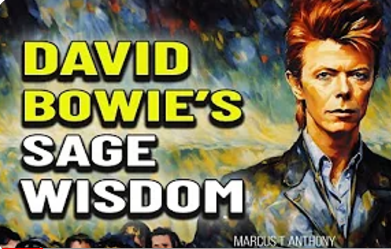
A bird sitting in a tree is never afraid of the branch breaking, because her trust is not on the branch, but on its own wings.” Denzel Washington.
It is not possible to create perfect systems. We can simply aim for better. And given that our systems and institutions will inevitably fail us sometimes, it is unwise to place too much of our sense of self and security on those systems and institutions. This is why it is important to develop a sense of internal strength and resilience. And to do that, we have to work on ourselves, and develop the right relationship with the mind, our feelings (including our woundedness), and the world around us.
However, many ideologies and online communities today (spanning the entire political and social spectrum) perpetuate grievance and blame worldviews. They typically garner community support by identifying and projecting against enemies, mocking, shaming and condemning them. Some are obvious, such as conspiracy theory cultures, grievance-based social justice movements, anti-SJW and anti-woke cultures. Unfortunately, this also often includes mainstream institutions, media channels and leaders. It is very easy to get caught up in such spaces, and to allow our minds to be colonised by them.
I suggest establishing a healthy distance from them all. Instead, look for good faith leaders and movements that seek responsible change in the world, and that seek to genuinely empower their audience; not to exploit their trauma and rage.
If we fail to develop an inner locus of power, we are going to be readily pushed and pulled by the world, cast upon a sea of emotional turmoil, as that world inevitably changes across the span of our lives. We may even sink to a life of projection and rage at the world and it’s people, a fruitless journey which ends in entrenched hopelessness and powerlessness.
We are easy prey for bad faith actors and bad faith communities once we lose our sense of inner strength. Once they lose our sense of egency, some people attempt aggressive power and control over the system and other people. They may become destructive.
We cannot always change the world. I live in China, and many things here are out of my control, while other situations are simply beyond my understanding. I am quite vulnerable in the sense that I enjoy few of the legal or human rights that people in western countries do. When I experience confusion, “oppression” or injustice, quite often there are no external means of rectifying the situation. There are few institutions or systems to support me, let alone “safe spaces” and counselling.
Let me count the ways.
Within a few weeks of arriving in China, I was accosted by a local man at the post office. I inadvetently stood in the wrong line when lining up to be served (it was the line for mailing special packages, but I didn’t know). Suddenly a local man came up to me, waved his finger in my face and started shouting, demanding to know why I had pushed in. “You think you are special in this country!?” he yelled. I apologised and explained that this was my first time at the post office and I did not know the system. Later I learned that queue-jumping was a common practice in China. Most people ignore it. But not everyone.
I’ve also been evicted from my own home (twice) in China. When I arrived in Beijing in 2002, an administrator helped me rent an apartment across the street from the university (he even arranged the “foreigner discount” for me, elevating the actual price and taking a cut for himself). A week later there was a knock at the door, and when I opened it I found two uniformed police staring at me. They demanded to see my passport, and when I showed them said “Foreigners are not permitted to live here.” They generously gave me a few days to collect my things and move out. Apparently one of my Chinese neighbours had reported a laowai living amongst them. in 2015 I was also evicted from my rental apartment in Guangzhou. My employer had generously given me one of the apartments rented by the school. But later, when the landlord found out, he demanded that I be removed because he “felt comfortable with a foreigner in my apartment.”
I’ve been evicted from hotels in China, too. In 2011, I arrived at a hotel for a conference near Beijing, the man behind the check in counter stated flatly that, “Foreigners aren’t allowed here.” I protested, but it was not use. I had to go and stay at another hotel which accepted foreigners. The hotel refused to refund my $100 room fee, which I had paid for online.
I’ve been cursed at in public, and also had my Chinese wife called a “whore” and “traitor” on public transport, simply because she was with a foreigner. “You are a whore! How many men have you slept with!?” a young man on a public bus demanded to know. The verbal assault went on for about five minutes. The other passengers simply buried their heads in their phones, as if nothing was happening.
I’ve also been fired from a job here in China, without notice or justification. In 2015, I had been appointed as director of studies of an international program in Guangzhou. But after just two moths there, the female business owner (who I had never met before) turned up and made a serious of absurd accusations about me, and telling me to clear my things out of the office. The other directors there were horrified, and implored the business owner to reinstate me. So she offered me the job back, only with increased working hours and a literal 50% pay cut. This was untenable. There was little legal basis for me to challenge the decision, so I had no choice but to “resign.” The company had yet to secure my visa, so I literally had to leave the country within days, and leave all my possessions behind.
I later found out the business owner merely wanted to save money, and ditching one director was the simplest way.
And yet, I chose to return to China less than a year later.
The following institution I worked for was an international university programme designed to train Chinese students to study in the US and other English-language countries. We had a very progressive boss for two years, and we had a significant number of staff from other countries, and also Hong Kong and Taiwan. I worked very hard and was rewarded with several roles coordinating special programmes. Then the liberal-minded leader left. Unfortunately, he was replaced by a rather less progressive fellow. In his first meeting, the new guy announced within the first minute that: “This is China, and in China the minority must serve the majority.” He said this in English (which was the language the college had always used as the medium of communication), then abruptly changed to Chinese for the rest of the meeting. Thereafter, the institution’s default language became Chinese. Over the following two years, most of the other foreigners and I were removed from management positions, and many of our programmes dismantled without consultation. There was nothing we could do.
Another employer in China publicly condemned me on the organisation’s web pages – not once, but twice – for privately questioning a system protocol, resulting in my having half my annual bonus slashed, and my annual staff performance review of “excellent” being formally retracted. And all that without ever speaking to me about the decision. My email asking for clarification from the administration was never answered. My crime? Making a polite request to the administration that a student’s grade be changed, after the student came to me and showed me that he and another student had mislabeled an assignment.
Oh, and I’ve been physically assaulted in public. Just the once, though. About three years ago, a taxi driver suddenly became violent when my phone would not scan his payment code. Nobody carries cash in China, so I had no choice but to tell him that I would go up to my apartment and get cash from my drawer. I had done that on several previous occasions when the scanner didn’t work, without incident. But this driver became enraged, and started yelling at me. Suddenly, and without warning he shoulder charged me, and pushed me to the ground. Luckily I was able to get back up quickly. The driver then jumped into his vehicle and left. I was mostly unharmed, except for a graze in my hip. My shirt was also ruined, as it had torn from the force of landing on the concrete path.
And then there are the myriad “microaggressions” that I regularly experience in China. Foreigners in China know them all too well.
“Wow, you can use chopsticks!” (“Yes, but only one at a time,” is my common response.)
“Your Chinese is so good!” (after I merely greet someone with “Ni hao”).
“Why do foreigners have such big noses?”
And so on.
My attitude is that the best way to deal with microaggressions is to be micro-offended, and to just let them go. We are all human, and we all unintentionally do and say things that may be slightly rude or offensive to others. If no harm is intended, most of the time we can just move on.
To put all of the tales above into perspective, they have all occurred over a period of two decades, during which time 99.9+% of my interactions with China and its people have been positive or at least neutral. I have received so much in my time here, and that has far outweighed the negative side. I remain grateful (though in light of recent events, admitedly less optimistic about my future here than previously). Years ago I chose to let go of all grievances I held, and to focus on the present and my immediate experience. This has opened a space for genuine engagement with Chinese people, and even with its often frustrating institutions and systems. People can sense it when you are open and present. And they can sense it when you are angry and resentful, projecting past grievances onto the people and situations you encounter. Resentment is its own punishment, and robs the soul of the nourishment of engaging with the world and its people, here and now. And we are all greatly in need of such sustenance during these troubled times, where we are regualarly being tested with disruption and uncertainty.
In his highly regarded book Man’s Search For Meaning, psychoanalyst Victor Frankyl described his time in a Nazi concentration camp, where he spent much of World War Two. All about him he saw what were possibly the worst injustices ever perpetrated by and on humanity. Many of his fellow Jewish prisoners gave up. Typically, those that did would simply refuse to get out of bed, and lie there in their own faeces and urine, till the prison guards came to take them away and shoot them. Frankyl’s own human dignity and power were stripped away to almost nothing. Almost. But what Frakyl realised is that there is one kind of power that nobody, not even the Nazis, could take away from him. And that was the power to choose the attitude he could take to his internment. The meaning of it all.
We all have the power to choose a healthy and empowered relationship with the world and its people. No matter where we are or what we are experiencing. And we can often choose gratitude over grievance. Don’t let anybody take that power away from you. Not even for a good cause.
Marcus
This is an extract from Marcus T Anthony’s latest book: Power and Presence: Reclaiming Your Authentic Self in a Digitized World.






